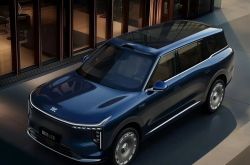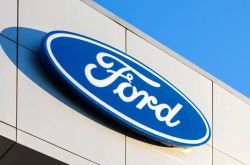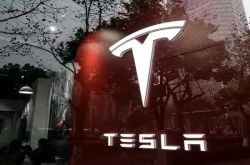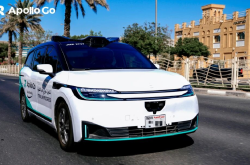“Great Wall Motors Defiantly Rejects Range Extenders” VS “Detractors Misunderstand Technology”: Plug-in Hybrids or Range Extenders?
![]() 05/08 2025
05/08 2025
![]() 590
590
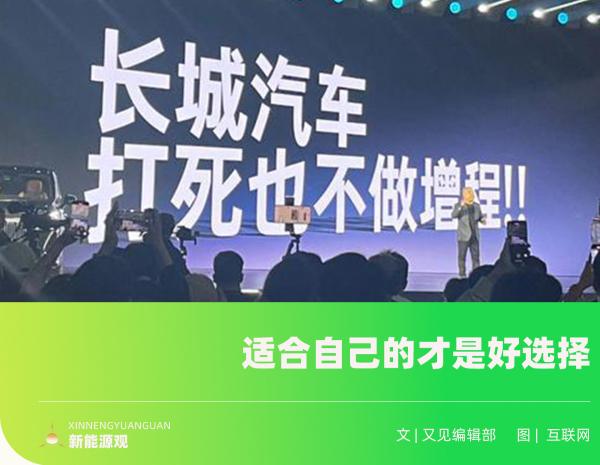
Original content from New Energy Outlook (ID: xinnengyuanqianzhan)
Full text: 2757 words, reading time: 7 minutes
Recently, Wei Jianjun, chairman of Great Wall Motors, echoed Mu Feng, the company's president, in stating, "Great Wall Motors will never produce range extenders," adding that "Great Wall Motors has no plans for range extender technology and will never produce it in the future."
While he did not explicitly label "range extender technology as outdated," his remarks ignited the ongoing debate about this technology route.
At the 2025 Shanghai International Auto Show, Deng Chenghao, vice president of Changan Automobile and CEO of Deep Blue Auto, publicly responded to the statement "We will never produce range extenders": "Since consumers choose range extenders, there must be a reason for it. Saying this is alienating the market." As someone with a background in power technology, he believes that those who declare "we will never produce range extenders" do not understand technology.
This topic has sparked multiple public debates among automotive industry executives, with many automakers criticizing range extender technology as "outdated." However, despite being labeled as "outdated" by many, this technology is attracting more and more automakers to accelerate their efforts in this area.
At press conferences, automakers spar with PowerPoint presentations, while consumers cast their votes with orders at 4S stores. Here, sales consultants enthusiastically explain "no range anxiety with the option of gas or electricity," while over there, engineers present data in the lab: "High-speed fuel consumption is 15% higher than that of fuel vehicles!" Even European automakers, which once mocked range extenders as "redundant," are now dissecting and studying the range extender solutions of Chinese brands.
This is the intriguing storyline currently unfolding in China's new energy vehicle market: as range extender models dominate the market with sales of 100,000 units per month, and despite the condemnation of "outdated technology" accompanying sales victories, the industry suddenly resembles a large-scale reality show - everyone knows the script is full of contradictions, but they can't help but follow it to the end.
1. The Paradox of "Outdated Technology" Quietly Making a Fortune
Mu Feng's firm stance has recently put Great Wall Motors in the spotlight. In fact, this is not the first time Great Wall Motors has publicly expressed its views on the "outdated" nature of range extender technology.
Li Ruifeng, CGO of Great Wall Motors (then CEO of WEY), once criticized Huawei's Yu Chengdong for praising range extenders: "It is a consensus in the industry that range extender hybrid technology is outdated, and no matter how big your mouth is, you can't make outrageous claims." "Range extenders are outdated. Different industries are like different mountains. Don't confuse casualness with personality."
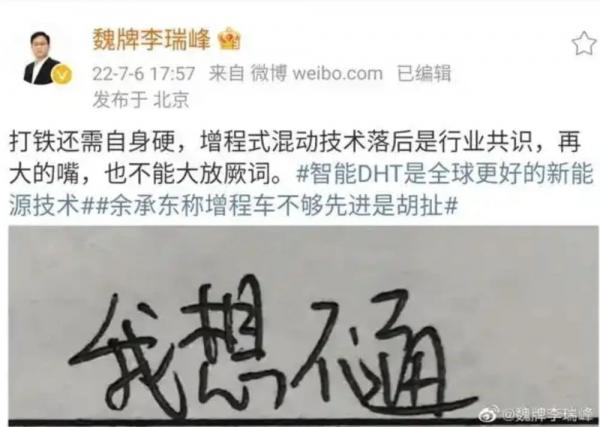
Image/Li Ruifeng's Weibo post
Source/Screenshot from New Energy Outlook
In fact, since its inception, range extender technology has been mired in controversy over whether it is "technologically outdated" or a "pragmatic choice." After the success of the Li ONE, range extender vehicles have received increasing attention from the market. On one side, some automakers shout that "range extenders are outdated technology," while on the other side, consumers are using real money to elevate range extenders to a pedestal.
The polarization of automaker camps reflects the deep contradictions in the automotive industry during its transition period. The debate over range extender routes essentially boils down to a clash between technological routes and market choices.
Technologists believe that range extenders represent a backward step in energy conversion efficiency. Automakers such as Volkswagen and Great Wall Motors argue that range extenders undergo two energy conversions - "oil to electricity to kinetic energy" - resulting in efficiency losses of up to 15%-20% under medium to high-speed conditions. Volkswagen's former executive Wiedemann was even more ruthless in criticizing them as "redundant."
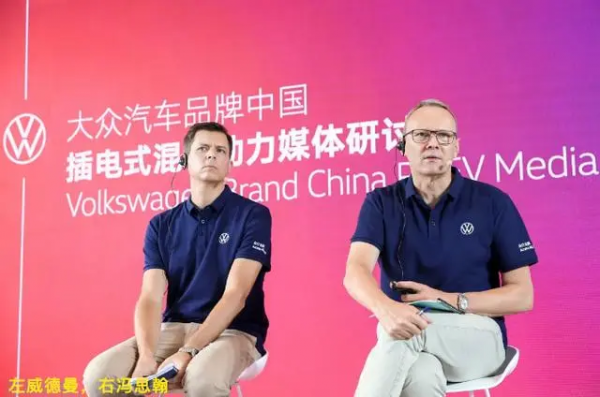
Image/Wiedemann's evaluation of range extender technology at a plug-in hybrid seminar
Source/Screenshot from New Energy Outlook
However, market proponents, who stand opposed to technologists, believe that range extenders embody a pragmatic philosophy that prioritizes user experience. Brands such as Li Auto and AITO, with their range extender vehicles sweeping the market, rely on the core logic of "electricity for short distances, gas for long distances" to fit various scenarios.
Office workers in Beijing, Shanghai, Guangzhou, and Shenzhen have discovered that the combination of a "large battery + small fuel tank" in range extenders almost perfectly suits family life scenarios: commuting on weekdays with pure electricity costs less than 10 cents per kilometer, and weekend cross-provincial road trips can be planned spontaneously. There's no need to queue for charging stations on long-distance trips. It not only solves the anxiety of pure electric range but also allows for a better experience of the driving pleasure and economy of new energy vehicles, killing two birds with one stone.
The most powerful weapon of market proponents is market data: Li Auto's L series sells over 30,000 units per month, AITO's M7 dominates the mid-to-large SUV market, and Leapmotor's C11 range extender version brings the price down to the 150,000 yuan range... In 2024, sales of range extender electric vehicles exceeded 1.2 million units, with market share rapidly increasing from 3.6% in 2022 to 9.1% in 2024.
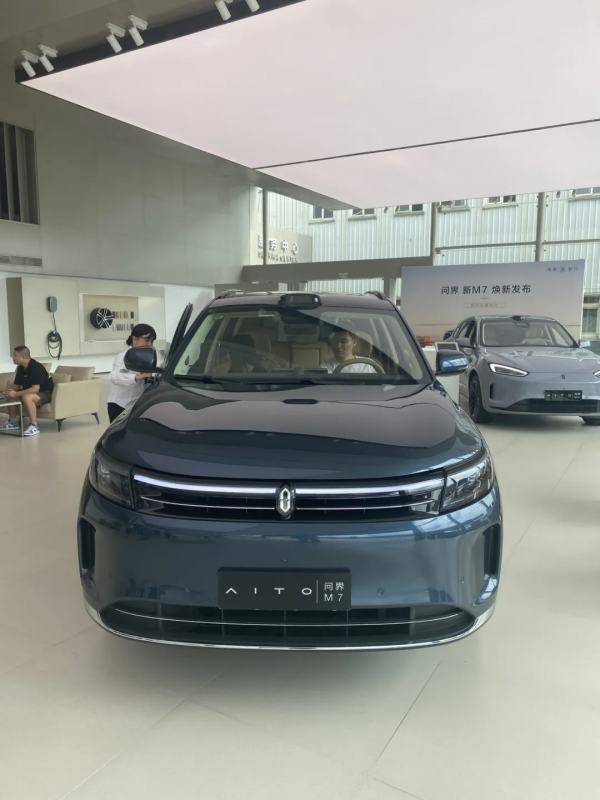
Image/AITO M7
Source/Screenshot from New Energy Outlook
If these facts still don't make a case, market proponents say, just look up - even international giants like Volkswagen and Ford, which once sneered at range extenders, are secretly studying range extender solutions.
2. Refusing to Produce Range Extenders: Technological Purism or Strategic Maneuvering?
During the transitional period of lagging charging infrastructure and unbreakthrough battery technology, market proponents firmly believe that range extenders are the most reliable "stitching solution" that not only meets policy requirements for pure electric range but also circumvents range anxiety. The key is that behind the incremental market data are real profits reflected on automakers' financial statements.
Deng Chenghao, CEO of Deep Blue Auto, who does not agree with the statement "we will never produce range extenders," also acknowledges the flaws of range extenders but emphasizes that 99% of countries worldwide are suitable for promoting range extenders. "Chinese consumers now believe that high-end vehicles should use range extenders, while low-end vehicles should use hybrids. There are nearly two million range extender vehicles on China's roads. It makes no sense to keep saying 'we will never produce range extenders.'"
Amid the tide of peers embracing range extender technology, Great Wall Motors' attitude stands out as incompatible. There's another detail worth pondering: When Li Ruifeng of Great Wall Motors responded to Yu Chengdong, he said, "Those who produce range extenders can quietly make a fortune. Why do big mouths have to say it out loud?" So, here comes the question - in 2024, the sales growth rate of new energy vehicles at Great Wall Motors was 22.8%, far below the industry average. The monthly sales of its main model, the Haval Menglong PHEV (plug-in hybrid electric vehicle), were only over 4,000 units, less than one-tenth of those of Li Auto's L7. Since Great Wall Motors also knows that those who produce range extenders are quietly making a fortune, why does it "refuse to produce range extenders"? Is it because it can't bear to part with money? Is it due to technological purism? Or is there another strategic consideration?
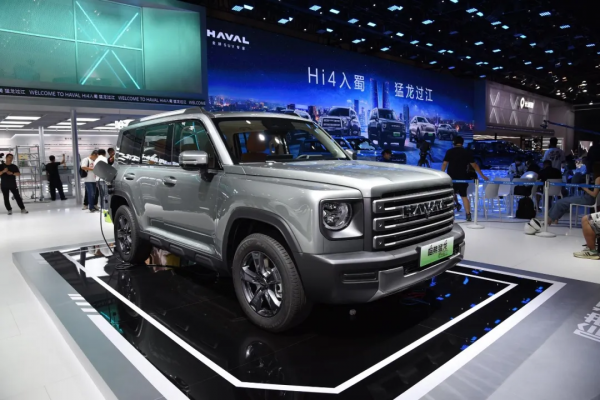
Image/Haval Menglong
Source/Screenshot from New Energy Outlook
In the eyes of Great Wall Motors, range extenders are like Swiss Army knives - capable of doing everything but not proficient in anything. Great Wall Motors' negation of range extender technology stems from the deep connection between its technological path and brand positioning. On the first day of the 2025 Shanghai Auto Show, some clues could be seen in the media interviews with Great Wall Motors.
Li Ruifeng mentioned Great Wall Motors' "Pan-Internal Combustion Engine Strategy" in the power sector, which utilizes both oil and electricity. On the one hand, it continues to delve into internal combustion engines, and on the other hand, it places its bets on its self-developed all-scenario efficient new energy four-wheel drive hybrid system.
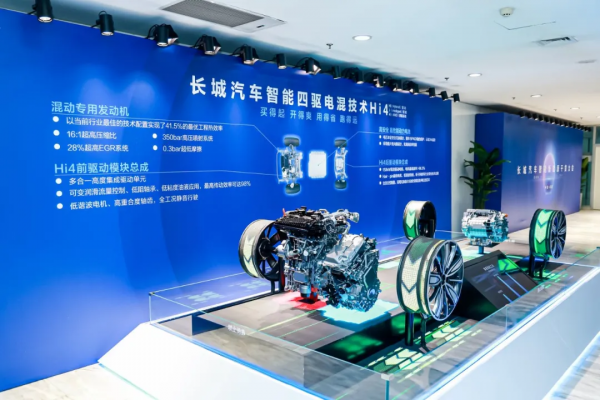
Image/Great Wall's new energy four-wheel drive hybrid system
Source/Screenshot from New Energy Outlook
Great Wall Motors' confidence in "refusing to produce range extenders" is closely related to this hybrid system. Diversified hybrid technology products, a complete hybrid ecosystem, differentiated layouts catering to scenario needs, and a better fit with Great Wall Motors' brand positioning for tough off-road vehicles - these are the reasons why Li Ruifeng gave the answer: "Great Wall Motors has no need to produce range extenders."
But the other side of the coin is the cruel reality: the new energy penetration rate of the entire Great Wall Group is only 25%, while Li Auto, which bets on range extenders, has surpassed 70%. Perhaps Great Wall Motors is playing a bigger game. While most automakers are engaged in fierce competition in the range extender sector, Great Wall Motors has quietly laid out a hybrid system covering sedans, SUVs, pickup trucks, and heavy trucks. With such ambitions for "full-scenario coverage," Great Wall Motors believes that the transitional technology of range extenders cannot carry this weight.
3. Are You on the Side of Technologists or Market Proponents?
A conversation between two families at the new energy exhibit area of the Shanghai Auto Show is highly representative.
A couple who test-drove the Li L8 discussed that pure electricity is sufficient for weekdays, and there's no anxiety about weekend road trips. As the prevalence of charging stations increases, range extenders will become even more cost-effective. With a range of 1,200 kilometers and the ability to discharge externally, they won't need to bring a gas stove when camping with their kids on weekends.
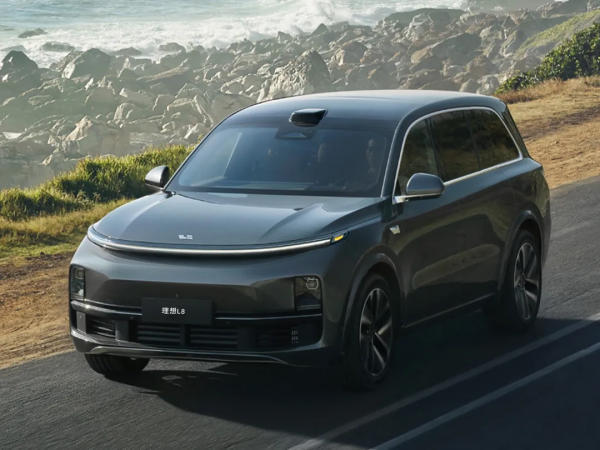
Image/Li L8
Source/Screenshot from New Energy Outlook
However, an off-road enthusiast next door who was studying tanks sneered, "When playing in the sand, the electric motor runs at high load continuously, and the range extender can't keep up with power generation. Last year, some cars broke down at the Alxa Hero Rally."
This cognitive divide is reshaping the market landscape. Urban middle-class families praise range extenders as "all-around butlers" - electricity costs less than 10 cents per kilometer for weekday commutes, and spontaneous weekend road trips don't require queuing for charging stations. However, users in northeastern China find that the pure electric range of range extenders is directly reduced by 30% in winter, and frequent charging and discharging accelerate battery degradation. The phenomenon of range extenders consuming 15% more fuel than fuel vehicles of the same class under highway conditions also makes ride-hailing drivers exclaim, "It saves fuel but not money."
Looking back from the spring of 2025, this debate over technological routes resembles the battle between keyboards and touchscreens in the feature phone era. Nokia adhered to the humanization of physical buttons, while Apple redefined mobile phones with touch interaction. History has no "ifs," but the market's choice is always cruel and real. During the transitional period when charging infrastructure is not yet perfect and battery technology has not achieved a milestone breakthrough, automakers willing to bend down and create "technological Frankensteins" are the ones most capable of capturing the dividends of the new energy era.
As for whether Great Wall Motors' choice is right or wrong, when off-road enthusiasts drive their tanks up Haohan Slope, when Li Auto owners take their families on a journey along National Highway 318, and when Huawei's ADS 3.0 allows range extender vehicles to find charging stations on their own - the victory or defeat of technology will ultimately be decided by the smiles behind every steering wheel.
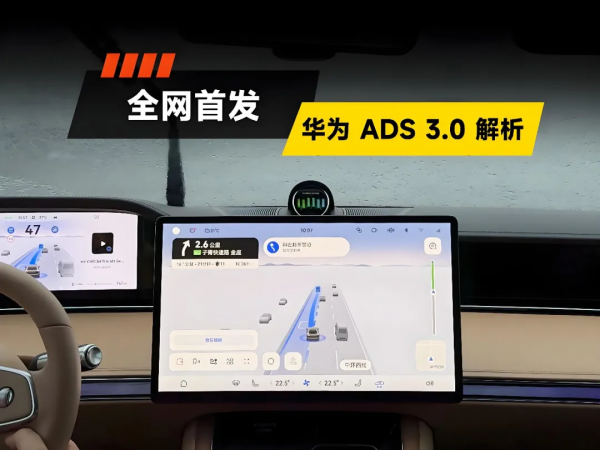
Image/Huawei ADS 3.0
Source/Screenshot from New Energy Outlook
The true winners in this battle may neither be the "lone warriors" who hold high the banner of technology nor the "masters of balance" who frantically harvest the market. Instead, they are the ordinary people who repeatedly compare parameters in showrooms, furrow their brows during test drives, and ultimately cast their votes with their wallets. They have taught all automakers a lesson with their most primitive survival wisdom: on the path of evolving automobiles from mechanical products to electronic consumer goods, those who treat users as "people" rather than "data" will truly hit the accelerator of the times.


